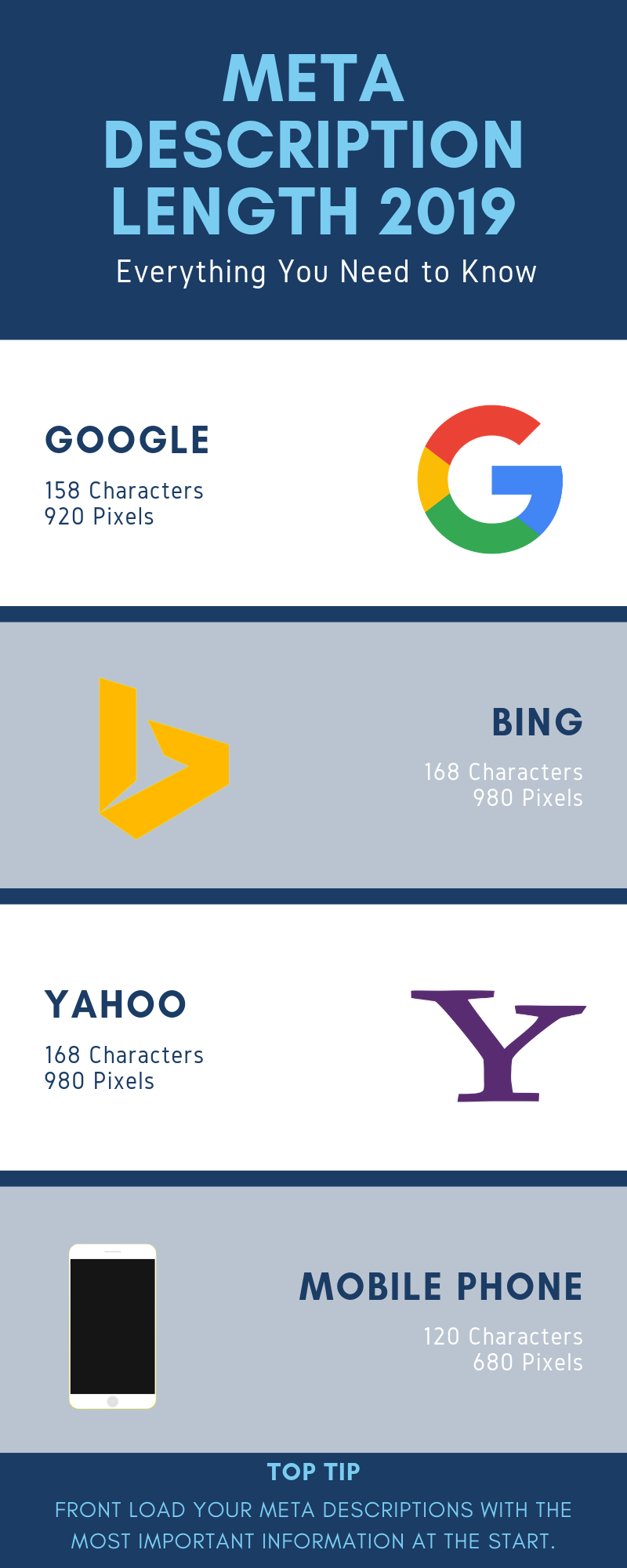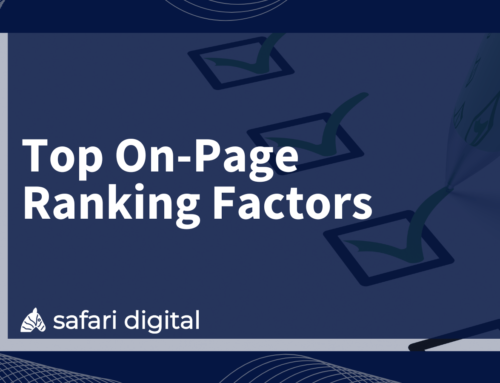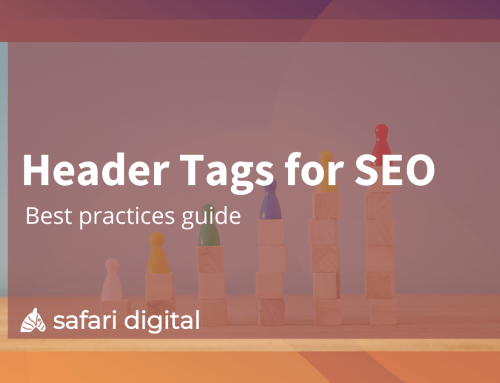
Meta descriptions should be between 150-160 characters and up to 920 pixels in size.
Google and other search engines will display the meta description in the search engine results pages across desktop and mobile devices.
Google announced more than a decade ago that meta descriptions do not impact search engine rankings and are therefore not considered an SEO ranking factor. And while meta descriptions do not have a direct impact on the way a website will rank, the contents of these descriptions can greatly influence user the click-through rate.
So, why does that matter for SEO?
You can be sure that Google is using CTR (click through rate) data as a way of determining what users are looking for in a particular search query. Therefore, websites that create a compelling meta description are far more likely to have a higher CTR which can indirectly impact search rankings.
What is a Meta Description?
A meta description is an HTML attribute that briefly describes the contents of a web page. Search engines will typically display meta descriptions as a way of summarising the contents of a web page so that users know what to expect when they click through.
Search engines show the meta description when it is highly relevant to the search query, otherwise, they might choose to dynamically generate descriptions from a web page that is going to better address the search query. Over the last few years, Google is trending towards dynamically populating meta descriptions based on user search queries, but webmasters should still specify their preferred meta description.
How Many Characters in Meta Description?
In May 2018 Google confirmed that they had reverted back to displaying shorter meta descriptions that are between 155-160 characters in length. On mobile devices, meta descriptions are 120 characters.
Prior to the most recent update, Google previously extended search snippets to 300 characters in December 2017 in an experiment that lasted less than six months.
It is not possible to specify a mobile, desktop and tablet meta description length, therefore it is important that meta descriptions include the most important information at the beginning. Sometimes referred to as ‘front loading’, the process of putting your most important information at the front of the description ensures that critical information displays across all devices.

Are Meta Descriptions Still Important?
Yes.
Meta descriptions still play an important role in encouraging users to click through to your website from the search engine results pages. Google is now trending towards dynamically populated search snippets which means that your specified meta description may be overruled for a more relevant piece of content from your page. The nature of the search query and keyword intent will have an impact on whether the description is dynamically populated or pulled from a specified description.
Recommendations for Meta Descriptions
- Front-load your meta descriptions with the most important information in the first 120 characters. Keeping the most important information at the beginning of the description will ensure that it is displayed irrespective of character limits across different search engines and devices.
- Keep it brief. You don’t need to communicate the entire contents of your page in the meta description. It’s important to address likely search queries and create a strong enough ‘hook’ that users will click through.
- Address your target keywords. Despite the fact that meta descriptions do not count for search rankings, you still need to include your most important keywords. Google is more likely to use your specified description if you use keywords that match up with the ones you are targeting on the page — and users are searching for.
- Track and test your meta descriptions. If your page is receiving a high number of impressions and a low click-through rate, it could be your meta description. Filter your pages by # of impressions against the number of clicks to find pages where your meta description may be lacking.
Final Thoughts
If you’re not sure where to start, work with SEO professionals like Safari’s SEO Brisbane team. SEO is not an overnight fix or something that you can do here and there and expect great results – SEO requires a consistent, long-term approach that considers the hundreds of different factors that influence how you rank in Google.







